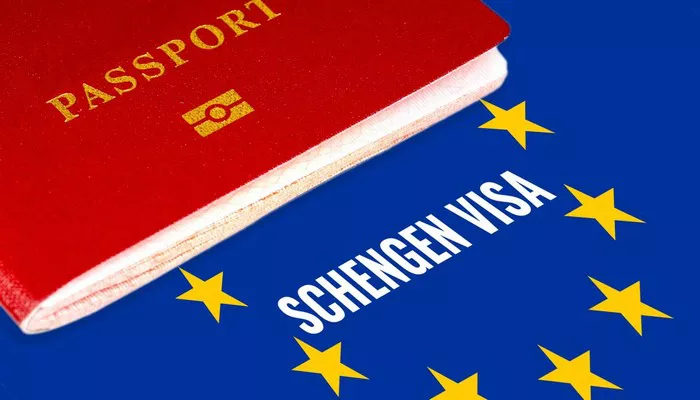Securing a Schengen visa is often seen as a gateway to exploring Europe’s diverse cultures, landscapes, and histories. However, the process can be daunting, and rejection is a reality many applicants face. Understanding the reasons behind these rejections is crucial for those seeking to obtain this coveted travel document. In this article, we delve into the eight most common reasons why Schengen visas get rejected, providing insights and tips to help applicants navigate the application process successfully.
1. Inadequate Documentation
One of the primary reasons for Schengen visa rejections is inadequate documentation. The visa application requires a comprehensive set of documents, including a valid passport, proof of accommodation, travel itinerary, travel insurance, financial means, and supporting documents based on the purpose of the visit. Failure to submit any of these documents or providing incomplete or incorrect information can lead to a visa rejection. Therefore, it is essential for applicants to meticulously review the document requirements and ensure all necessary paperwork is in order before submitting their application.
2. Insufficient Financial Means
Financial stability is a crucial factor in visa processing, as it demonstrates the applicant’s ability to support themselves during their stay in the Schengen area. Many visa rejections occur due to applicants failing to provide sufficient evidence of financial means to cover their expenses, including accommodation, transportation, and daily expenses. Applicants are typically required to provide bank statements, proof of employment, income tax returns, or sponsorship letters to demonstrate their financial capacity. It is vital for applicants to provide clear and verifiable documentation to substantiate their financial situation and avoid rejection on these grounds.
3. Lack of Travel Itinerary
A well-defined travel itinerary is essential for a Schengen visa application, outlining the applicant’s planned activities, destinations, and duration of stay within the Schengen area. Failure to provide a detailed itinerary or providing conflicting information regarding travel plans can raise doubts about the applicant’s intentions and lead to visa rejection. Applicants should provide a clear and realistic travel itinerary, including accommodation bookings, transportation arrangements, and planned activities, to convince the visa authorities of their genuine purpose of visit and intentions to return to their home country.
4. Unconvincing Purpose of Visit
The purpose of visit plays a significant role in visa processing, as authorities assess whether the applicant’s reasons for traveling to the Schengen area are genuine and legitimate. Common purposes of visit include tourism, business, family visit, education, or medical treatment. Visa rejections often occur when applicants fail to provide convincing evidence or justification for their intended purpose of visit. It is essential for applicants to provide supporting documents, such as invitation letters, conference registrations, or enrollment letters from educational institutions, to substantiate their purpose of visit and convince the visa authorities of their intentions.
5. Inadequate Travel Insurance Coverage
Travel insurance is a mandatory requirement for Schengen visa applicants, providing coverage for medical emergencies, repatriation, and other unforeseen events during their stay in the Schengen area. Visa rejections often occur when applicants fail to obtain adequate travel insurance coverage or provide insurance policies that do not meet the Schengen visa requirements. It is crucial for applicants to purchase travel insurance from reputable providers that offer comprehensive coverage and meet the minimum requirements specified by the Schengen visa regulations to avoid rejection on these grounds.
6. Suspicion of Immigration Intent
Visa authorities assess each application to determine whether the applicant poses a risk of overstaying or illegally immigrating to the Schengen area. Applicants who are unable to demonstrate strong ties to their home country, such as stable employment, property ownership, family ties, or other commitments, may raise suspicions regarding their intentions to return after the authorized stay. Visa rejections often occur when applicants fail to convince the authorities of their genuine intentions to abide by the visa regulations and return to their home country upon the expiry of their visa. Therefore, it is essential for applicants to provide compelling evidence of their ties to their home country to mitigate any concerns regarding immigration intent.
7. Previous Visa Violations or Overstays
Applicants with a history of visa violations, such as overstaying or breaching visa conditions, may face challenges in obtaining a Schengen visa. Visa authorities carefully review the applicant’s travel history and immigration records to assess their compliance with visa regulations. Previous violations or overstays raise concerns about the applicant’s credibility and adherence to visa requirements, increasing the likelihood of visa rejection. Applicants with a history of visa violations should provide explanations and mitigating circumstances to address any concerns and demonstrate their commitment to complying with visa regulations in the future.
8. Inconsistencies or False Information
Providing false information or inconsistencies in the visa application can have severe consequences, including outright rejection and potential bans on future visa applications. Visa authorities conduct thorough checks to verify the accuracy and authenticity of the information provided by applicants, including cross-referencing with immigration databases and other sources. Any discrepancies or false information discovered during the verification process can lead to immediate rejection of the visa application. Therefore, it is paramount for applicants to provide truthful and accurate information in their visa application and be prepared to provide supporting documentation to substantiate their claims if required.
Conclusion
In conclusion, obtaining a Schengen visa requires careful preparation, attention to detail, and adherence to visa requirements. By understanding the common reasons for visa rejections outlined in this article and taking proactive measures to address potential concerns, applicants can increase their chances of a successful visa application. It is essential for applicants to meticulously review the visa requirements, gather all necessary documentation, and present a compelling case to convince the visa authorities of their eligibility and intentions to abide by the visa regulations. With proper planning and preparation, applicants can navigate the Schengen visa application process successfully and embark on their European adventures with confidence.


